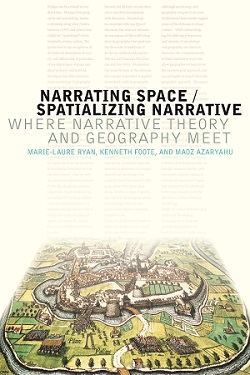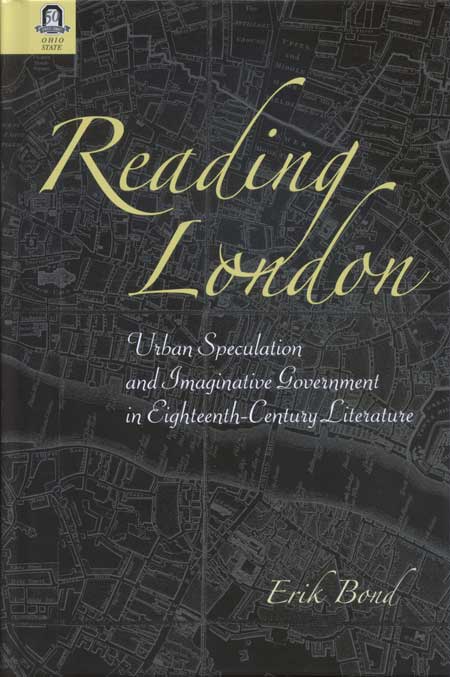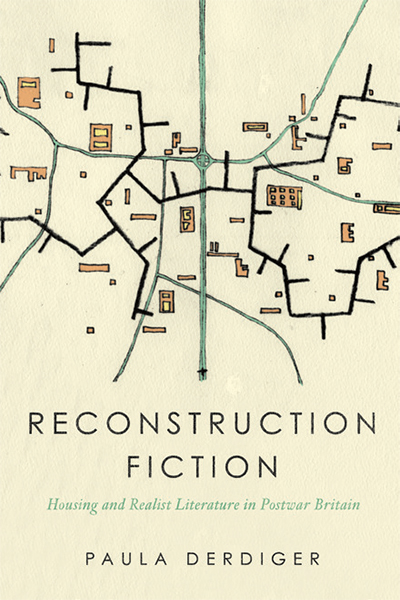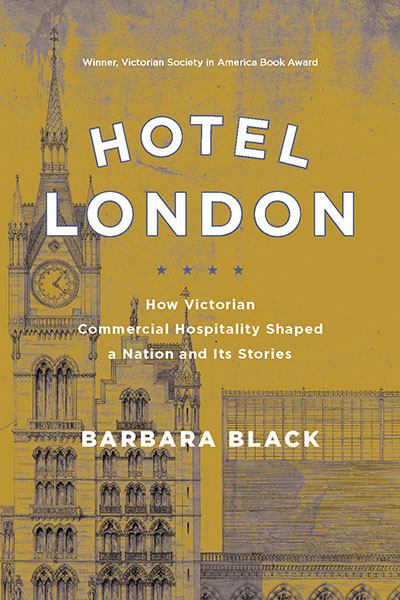“Derdiger traces many intriguing intersections, imbricating analyses of literary realist spaces and detailed postwar contexts … Rich in nuanced connections.” —Alice Ferrebe, Journal of British Studies
“Paula Derdiger’s monograph offers an insightful, persuasive, and long overdue theorizing of British fiction from the late 1940s to the 1970s—a period often neglected or summarily dismissed in accounts of the twentieth-century novel, which tend to privilege modernist experimentation at one end of the century and postmodernist innovation at the other.” —Mariadele Boccardi, Modern Language Review
“Paula Derdiger casts a generous and sensitive eye at the portrayal of the built environment and architecture, in the reconstruction novel, and offers new insights into the state of the society in post-war years. In her account of the impact of the second world war on the cities and their dwellers, Derdiger touches on topics that are relevant to architects and critics.” —Jamileh Manoochehri, Housing Studies
“Paula Derdiger’s book superbly meets the requirements of the second decade of the twenty-first century for new studies addressing the need to rebuild the social and material spheres that have been depredated by decades of the promotion of a neoliberal individualism.” —Nick Hubble, author of Proletarian Answer to the Modernist Question
“Reconstruction Fiction tackles an important subject that is central to current scholarship on British mid-century literature, but it does so in an original way and—vitally—it marshals a range of writers with real élan.” —Leo Mellor, author of Reading the Ruins: Bombsites, Modernism and British Culture
“Paula Derdiger’s Reconstruction Fiction is a welcome and necessary book, one that adds significantly to a richer and more nuanced understanding of twentieth-century British literature and culture.”—Todd Kuchta, author of Semi-Detached Empire: Suburbia and the Colonization of Britain, 1880 to the Present
Reconstruction Fiction: Housing and Realist Literature in Postwar Britain by Paula Derdiger assesses the impact of World War II and the welfare state on literary fiction by focusing on one of the defining issues of the postwar period: housing. Through compelling close readings and lively historical and cultural analysis, Derdiger argues that literary realism was a necessary, generative response to the war and welfare state since they impacted the built environment and landscape. Wartime decimation of buildings and streets called for reconstruction, and reconstruction called not just for bricks and mortar, architectural drawings, town plans, preservation schemes, and new policies but also for fiction that invited particular ways of inhabiting an environment that had been irrevocably changed. Derdiger argues that fiction, like actual buildings, creates a sheltered space for the mediation between individual subjects and the social and geographical environments that they encounter. Realist fiction, specifically, insists that such mediation is possible and that it is socially valuable. Covering writers spanning various social positions and aesthetic tendencies—including Elizabeth Bowen, Graham Greene, Patrick Hamilton, Doris Lessing, Colin MacInnes, and Elizabeth Taylor—Derdiger shows how these authors responded to the war with realistic technique, investing in external conditions just as much as or more than their characters’ interior lives. In doing so, their reconstruction fiction helped to shape postwar life.
Paula Derdiger is Assistant Professor of English at the University of Minnesota Duluth.
Contents
Acknowledgments
Introduction “We Shall Look Out Through Glass”
Chapter 1 An Urgent Invitation: Theorizing Postwar Realist Writing
Chapter 2 Billets and Boardinghouses: Shared Space and the Reconstruction Novel
Chapter 3 Mobile Housing: Realizing Movement in 1950s City Fiction
Chapter 4 Country Houses: Nostalgia and the Realist Challenge
Chapter 5 Safe Houses: Seeking Shelter and Connection Post-Consensus
Conclusion Reconstruction as Departure and Return
Bibliography
Index
Related Titles:

Narrating Space / Spatializing Narrative
Where Narrative Theory and Geography Meet
Marie-Laure Ryan, Kenneth Foote, Maoz Azaryahu

Reading London
Urban Speculation and Imaginative Government in Eighteenth-Century Literature
Erik Bond



